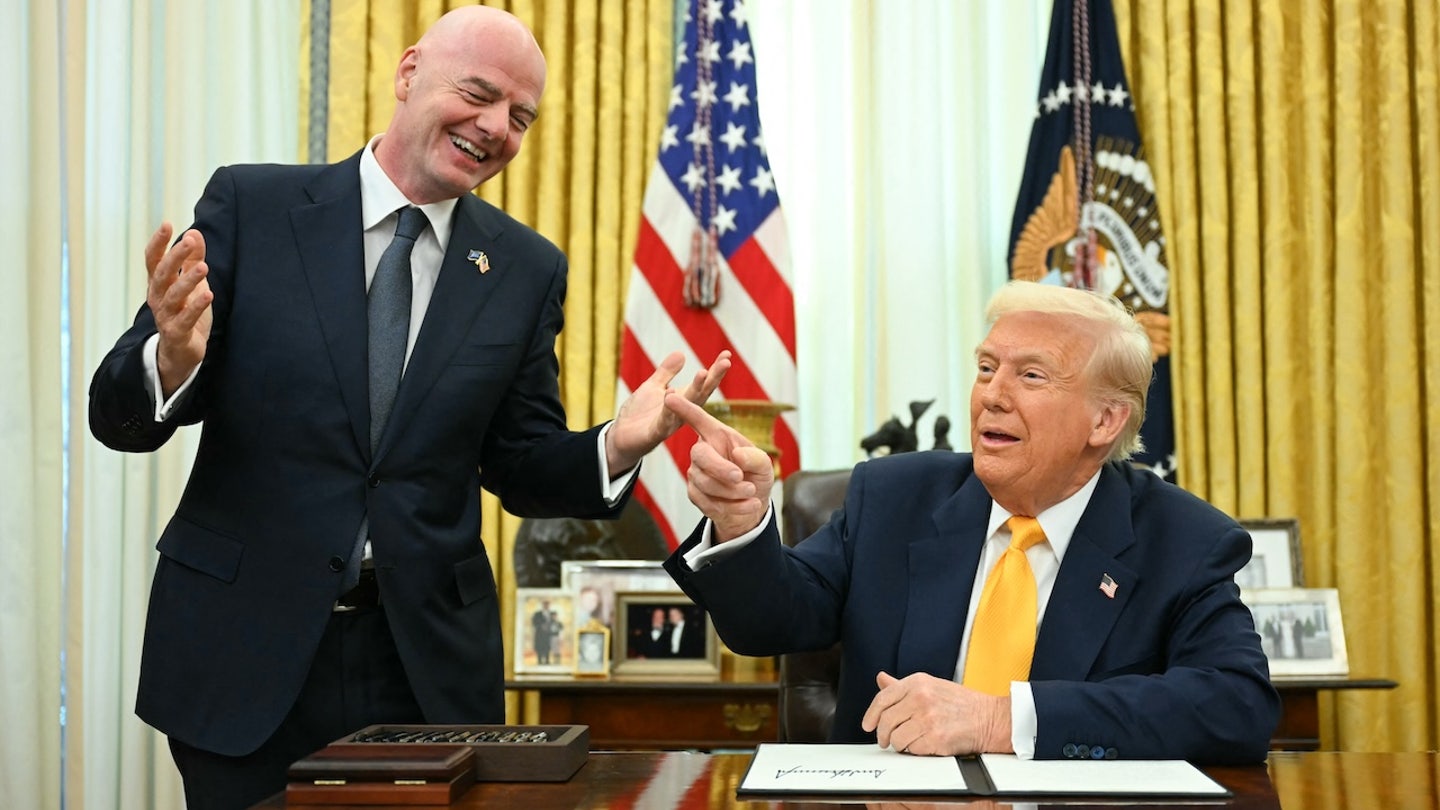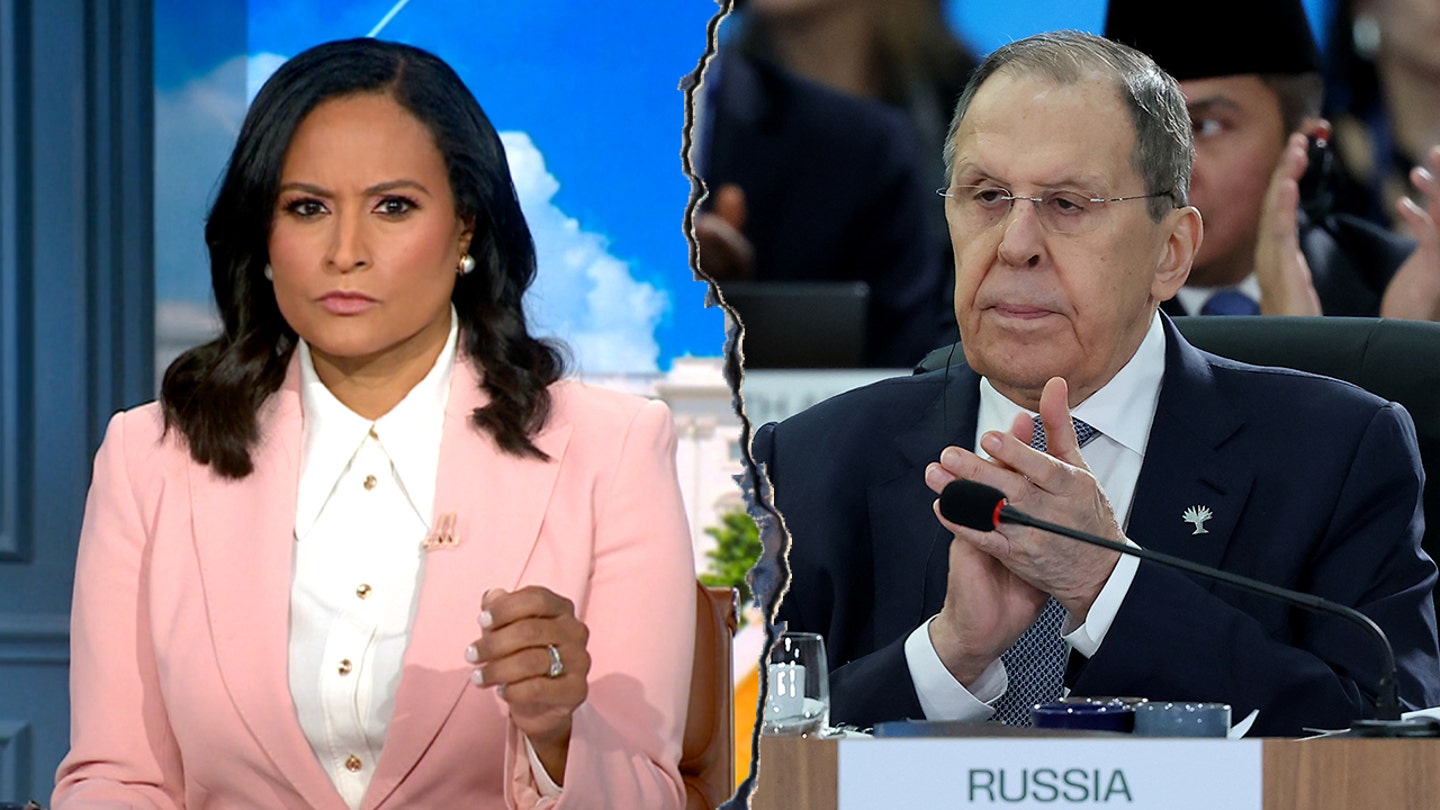
Vice President Vance, second lady attend Winter Olympics opening ceremony
Entities mentioned:
- Vice President JD Vance: Duty, Unity, Recognition
- Usha Vance: Duty, Loyalty, Unity
- Sergio Mattarella: Unity, Pride, Duty
- Kirsty Coventry: Duty, Leadership, Unity
- Thomas Bach: Legacy, Recognition, Influence
- Marco Rubio: Duty, Unity, Influence
- Giorgia Meloni: Unity, Competitive spirit, Influence
Article Assessment:
Credibility Score: 75/100
Bias Rating: 55/100 (Center)
Sentiment Score: 70/100
Authoritarianism Risk: 20/100 (Strongly Democratic)
Bias Analysis:
The article presents a balanced view of the events, focusing on factual reporting of the Vice President's activities. While it highlights positive aspects, it doesn't overtly favor any political stance.
Key metric: International Relations and Diplomacy
Let me tell you something - this is a GAME-CHANGING play in the arena of international relations! Vice President Vance is stepping up to the plate on the world stage, folks. He's not just a spectator, he's in the starting lineup of Team USA at these Olympic Games! The Vances are showing true team spirit, cheering from the sidelines for our athletes and engaging in high-stakes diplomatic scrimmages. This is fourth quarter diplomacy at its finest! Vance is running plays with Secretary of State Rubio, tag-teaming on bilateral talks with Italy's Prime Minister Meloni. It's like watching a well-oiled machine execute a perfect power play! The Olympics aren't just about athletic competition anymore, ladies and gentlemen - it's become a chessboard for global influence and unity. Vance is playing a long game here, building alliances and showcasing America's championship mentality on and off the field. I'm telling you right now, this is the kind of all-star performance that could change the scoreboard in international relations!

Skating governing body investigates ‘inappropriate’ toy missile displayed by Chinese athletes at competition
Entities mentioned:
- International Skating Union (ISU): Professional pride, Duty, Control
- Ren Junfei and Xing Jianing: Competitive spirit, Pride, Recognition
- Chinese Figure Skating Association: Loyalty, Pride, Influence
Article Assessment:
Credibility Score: 75/100
Bias Rating: 55/100 (Center)
Sentiment Score: 35/100
Authoritarianism Risk: 25/100 (Generally Democratic)
Bias Analysis:
The article presents a balanced view of the incident, quoting official sources and refraining from speculation. It maintains a neutral tone while reporting facts from multiple perspectives.
Key metric: International Relations and Diplomacy
Folks, we've got a MAJOR PENALTY on the ice! The Chinese team has committed an absolute FOUL by bringing a toy missile to the rink. Let me tell you something, this is NOT the kind of sportsmanship we expect in international competition! The ISU, acting as the referee in this high-stakes game, has blown the whistle and is reviewing the play. This could be a game-changing moment for China's standing in the figure skating world. They've essentially fumbled the puck in their own zone, and now they're on the defensive. The pressure is on as the clock ticks down - will they be able to spin this misstep into a triple axel of diplomacy, or will they face a major misconduct penalty? I'm telling you right now, this is the kind of move that can bench a team for seasons to come!

FIFA says US government has final say on World Cup host cities' safety amid Trump's threats to Boston
Entities mentioned:
- FIFA: Professional pride, Security, Duty
- Donald Trump: Power, Control, Competitive spirit
- Michelle Wu: Pride, Determination, Loyalty
- Gianni Infantino: Professional pride, Influence, Obligation
- Boston: Pride, Recognition, Legacy
Article Assessment:
Credibility Score: 75/100
Bias Rating: 55/100 (Center)
Sentiment Score: 35/100
Authoritarianism Risk: 45/100 (Mixed/Neutral)
Bias Analysis:
The article presents multiple perspectives, including Trump's threats, FIFA's stance, and Wu's response. While it leans slightly towards emphasizing the controversy, it maintains a relatively balanced approach in its reporting.
Key metric: International Relations and Diplomacy
Let me tell you something - this World Cup drama is heating up like a championship final! We've got a real power play unfolding here, folks. Donald Trump is coming in hot, trying to call an audible on Boston's hosting duties. But FIFA's not about to let anyone run interference on their game plan! They're playing defense, reminding everyone that when it comes to safety, the US government's got home field advantage. This is a crucial moment, ladies and gentlemen. Boston's got to step up to the plate and show they've got what it takes to host on the world stage. Mayor Wu's in the hot seat now - she's got to coach her team to victory and prove Boston's got that championship mentality. I'm telling you right now, this is a make-or-break moment for US soccer diplomacy. It's fourth quarter, the clock is ticking, and the whole world is watching to see if Team USA can pull off this hosting gig without fumbling the ball!

CONMEBOL pledges strong sanctions following Copa Sudamericana fan violence
Entities mentioned:
- CONMEBOL: Justice, Control, Professional pride
- Independiente: Self-preservation, Obligation, Duty
- Universidad de Chile: Competitive spirit, Pride, Self-preservation
- Chilean Foreign Ministry: Duty, Obligation, Security
- Gabriel Boric: Duty, Obligation, Security
Article Assessment:
Credibility Score: 75/100
Bias Rating: 50/100 (Center)
Sentiment Score: 30/100
Authoritarianism Risk: 35/100 (Generally Democratic)
Bias Analysis:
The article presents a balanced view, including statements from multiple parties involved. It reports facts and official statements without apparent favoritism towards any side, maintaining a neutral stance in its reporting.
Key metric: International Relations and Diplomacy
As a social scientist, I analyze that this incident of fan violence at an international football match has significant implications for international relations, particularly between Argentina and Chile. The involvement of high-level government officials, including the Chilean President, elevates this from a mere sporting incident to a diplomatic issue. The response of CONMEBOL, promising firm sanctions, indicates a desire to maintain control and uphold the integrity of international football in South America. The incident highlights the challenges of ensuring security at international sporting events and the potential for such events to strain diplomatic relations. The quick response from Chilean authorities to assist their citizens suggests a proactive approach to mitigate potential diplomatic tensions.

England Coach Thomas Tuchel Sorry For Saying Jude Bellingham 'Can Be a Bit Repulsive'
Entities mentioned:
- Thomas Tuchel: Professional pride, Duty, Righteousness
- Jude Bellingham: Competitive spirit, Ambition, Pride
- England National Team: Unity, Competitive spirit, Pride
- Real Madrid: Competitive spirit, Pride
Article Assessment:
Credibility Score: 75/100
Bias Rating: 50/100 (Center)
Sentiment Score: 40/100
Authoritarianism Risk: 20/100 (Strongly Democratic)
Bias Analysis:
The article presents a balanced view of the incident, quoting Tuchel directly and providing context. It doesn't seem to lean towards defending or criticizing Tuchel, maintaining a neutral stance.
Key metric: International Relations and Diplomacy
As a social scientist, I analyze that this incident highlights the importance of careful communication in international sports diplomacy. Tuchel's unintended use of the word 'repulsive' and subsequent apology demonstrate the sensitivity required in discussing players from different nations. This situation could potentially impact team dynamics and public perception of both the England national team and its management. The coach's swift action to rectify his statement shows an awareness of the potential diplomatic implications, which is crucial for maintaining positive relations within the team and with international partners. This incident also underscores the media's role in amplifying and potentially misinterpreting casual remarks, highlighting the need for precision in public communications by high-profile sports figures.

Trump Angry Not A Single Visiting European Leader Wearing Lederhosen, Tiny Hat
Entities mentioned:
- Donald Trump: Indignation, Control, Power
- Ursula von der Leyen: Duty, Unity, Obligation
- Volodymyr Zelensky: Determination, Justice, Unity
- Keir Starmer: Duty, Obligation, Professional pride
- European leaders: Unity, Duty, Obligation
Article Assessment:
Credibility Score: 30/100
Bias Rating: 30/100 (Lean Left)
Sentiment Score: 25/100
Authoritarianism Risk: 45/100 (Mixed/Neutral)
Bias Analysis:
The article leans left, evident in its satirical portrayal of Trump as culturally insensitive and dismissive of serious diplomatic matters. The framing mocks Trump's leadership style and understanding of international relations.
Key metric: International Relations and Diplomacy
As a social scientist, I analyze that this satirical article highlights the potential for cultural misunderstandings and stereotyping in international diplomacy. It portrays Trump as having a simplistic, caricatured view of European culture, which could negatively impact US-European relations. The article's absurd depiction of Trump's expectations for European leaders' attire serves to critique his approach to diplomacy and his perceived lack of cultural sensitivity. This satirical piece may reflect broader concerns about the state of US foreign policy and its potential effects on international cooperation, particularly in addressing serious issues like the Ukraine conflict.

Bolton unleashes on Trump Ukraine policy days after FBI raid
Entities mentioned:
- John Bolton: Revenge, Self-preservation, Justice
- Donald Trump: Power, Recognition, Legacy
- FBI: Duty, Justice, Security
- Vladimir Putin: Power, Control, Influence
- Pentagon: Security, Control, Professional pride
Article Assessment:
Credibility Score: 65/100
Bias Rating: 55/100 (Center)
Sentiment Score: 30/100
Authoritarianism Risk: 35/100 (Generally Democratic)
Bias Analysis:
The article presents multiple viewpoints, including criticisms of Trump's policies, but relies heavily on Bolton's perspective. While it includes some factual reporting, the emphasis on Bolton's critique slightly tilts the balance, though not significantly enough to be classified as partisan.
Key metric: International Relations and Diplomacy
As a social scientist, I analyze that this article highlights significant tensions in U.S. foreign policy, particularly regarding Ukraine and Russia. Bolton's critique of Trump's approach suggests a lack of coherence and strategy in diplomatic efforts, potentially weakening the U.S. position on the global stage. The reported FBI raid on Bolton's property adds another layer of complexity, indicating potential internal conflicts within the U.S. political establishment. This situation could impact U.S. credibility in international negotiations and alliances, especially concerning Eastern European security dynamics. The discord between different branches of government (White House, Pentagon) on Ukraine policy further underscores the challenges in maintaining a unified and effective foreign policy stance.

Trump touts Kim Jong Un relationship amid South Korea summit
Entities mentioned:
- Donald Trump: Power, Recognition, Influence
- Kim Jong Un: Power, Self-preservation, Control
- Lee Jae Myung: Duty, Unity, Security
- Kim Yo Jong: Loyalty, Power, Control
Article Assessment:
Credibility Score: 65/100
Bias Rating: 55/100 (Center)
Sentiment Score: 45/100
Authoritarianism Risk: 35/100 (Generally Democratic)
Bias Analysis:
The article presents multiple viewpoints, including Trump's statements and contrasting perspectives. While it leans slightly towards emphasizing Trump's statements, it also includes counterpoints and context, maintaining a relatively balanced approach.
Key metric: International Relations and Diplomacy
As a social scientist, I analyze that this article highlights the complex dynamics of US-North Korea relations, particularly through the lens of former President Trump's personal approach to diplomacy. Trump's emphasis on his relationship with Kim Jong Un, despite the lack of concrete progress on denuclearization, suggests a prioritization of personal rapport over traditional diplomatic processes. This approach has implications for the consistency and long-term effectiveness of US foreign policy in the region. The article also touches on tensions with South Korea, a key US ally, indicating potential strains in that relationship. The juxtaposition of Trump's positive rhetoric towards North Korea with his critical comments about South Korea raises questions about the stability and coherence of US alliances in East Asia.

DC arrests surpass 1,000 as Trump-backed crackdown enters 12th homicide-free day
Entities mentioned:
- John Bolton: Revenge, Self-preservation, Indignation
- Donald Trump: Power, Recognition, Legacy
- FBI: Justice, Duty, Professional pride
- Vladimir Putin: Power, Control, Influence
- Pentagon: Security, Control, Professional pride
Article Assessment:
Credibility Score: 70/100
Bias Rating: 55/100 (Center)
Sentiment Score: 30/100
Authoritarianism Risk: 35/100 (Generally Democratic)
Bias Analysis:
The article presents multiple viewpoints, including critical perspectives of Trump's policies, but also includes Trump's actions without overtly positive or negative framing. While it leans slightly towards criticism, it maintains a relatively balanced approach by presenting factual information from various sources.
Key metric: International Relations and Diplomacy
As a social scientist, I analyze that this article highlights significant tensions in U.S. foreign policy, particularly regarding the Ukraine conflict. Bolton's critique of Trump's approach suggests a lack of coherence and strategy in diplomatic efforts, potentially weakening the U.S. position on the global stage. The reported FBI raid on Bolton's property adds another layer of complexity, indicating potential internal conflicts within the U.S. political establishment. This situation could have far-reaching implications for U.S. credibility in international negotiations and its relationships with allies. The article also touches on the delicate balance of power between different branches of government, particularly the executive and law enforcement agencies, which could impact the effectiveness of U.S. foreign policy implementation.

Russian foreign minister accuses NBC host of wanting something to 'sell' during tense Ukraine exchange
Entities mentioned:
- Kristen Welker: Professional pride, Determination, Duty
- Sergey Lavrov: Control, Loyalty, Self-preservation
- Volodymyr Zelenskyy: Unity, Self-preservation, Determination
- Vladimir Putin: Power, Control, Pride
- Donald Trump: Influence, Power, Recognition
Article Assessment:
Credibility Score: 70/100
Bias Rating: 55/100 (Center)
Sentiment Score: 35/100
Authoritarianism Risk: 45/100 (Mixed/Neutral)
Bias Analysis:
The article presents both Russian and American perspectives, though it gives more space to the American viewpoint. The inclusion of Trump's statements and the framing of Lavrov's responses suggest a slight lean towards Western perspectives, but overall maintains a relatively balanced approach.
Key metric: International Relations and Diplomacy
As a social scientist, I analyze that this article highlights the ongoing tension between Russia and the West regarding the conflict in Ukraine. The exchange between NBC's Kristen Welker and Russian Foreign Minister Sergey Lavrov demonstrates Russia's refusal to acknowledge its actions as an invasion, instead framing it as a 'special military operation'. This semantic dispute reflects deeper geopolitical conflicts and differing narratives about the situation. The article also touches on the role of the United States, particularly President Trump's involvement in negotiations, which suggests a complex diplomatic landscape with potential implications for global power dynamics and conflict resolution efforts.